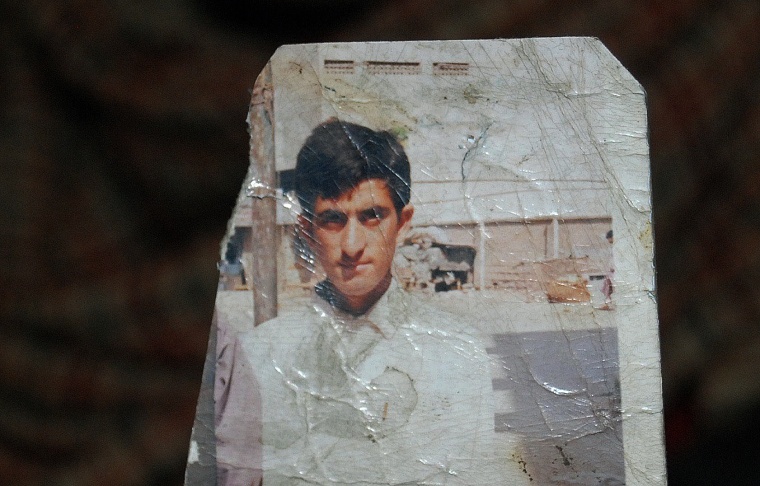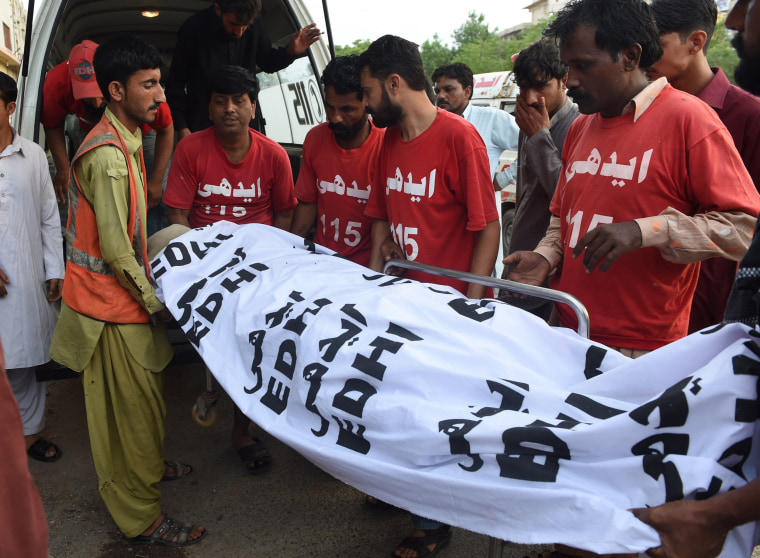LONDON — Pakistan executed a young man whose case touched off an international outcry amid claims he was tortured into a murder confession and convicted as a juvenile.
Shafqat Hussain was hanged on Tuesday morning in Karachi Central Jail. He previously had been prepared for execution at least four times only to receive last-minute stays.
Amnesty International’s South Asia research director David Griffiths said it was a "deeply sad day" for Pakistan.
“The government has shown a callous indifference to not just human life, but also to international law and standards," Griffiths said in a statement.
Hussain was arrested in 2004 at the age of 14, and convicted by a Pakistani anti-terrorism court of kidnapping and killing a child. The charges were later reduced to involuntary manslaughter.
Related: Sent to Death Row at 14, Execution Is Halted
The young man's lawyers at the Justice Project Pakistan said Hussain's "confession" came after nine days of torture — which included electrocutions, and beatings. They also took issue with Hussain's trial in an anti-terrorism court though the young man had no known links to terror groups.

Hussain's inclusion on a list of "terrorists" is why his name came up last year when Pakistan lifted its unofficial six-year moratorium on the death penalty in response to the deadly Taliban attack in Peshawar that killed more than 140 children in December. Amnesty International said it has recorded at least 200 executions since Pakistan then.
Maya Foa, from the British human-rights group Reprieve, said Hussain's execution spoke to "all that is wrong" with Pakistan's justice system
"He faced a catalog of injustice, sentenced to death while still a child after being tortured by the police until he produced a so-called confession," Foa said. "The government's decision to push ahead with the execution despite calls to halt it from across Pakistan and around the world seems to have been more a show of political power than anything to do with justice."
Related: Shafqat Hussain Case Puts Pakistan's Justice System in Spotlight
Hussain grew up in Pakistan's rural Azad Kashmir region as the son of a poor farmer. His learning disability made school a struggle, according to JPP, which said that he decided to drop out and help support his parents and six siblings.

He moved to Karachi where he found work as a security guard, growing close to one family which moved into the building where he was employed — playing with their children and even helping to babysit.
When one of the kids went missing, Hussain helped the family to search and file a police report. Around a month later, he was arrested and charged with kidnapping and murder.
Although Hussain confessed to the murder, he later told a court he had only done so under torture. His lawyers told NBC News that the young man's genitals were electrocuted and his body bore burn marks from where cigarette stubs were put out on him.
Pakistan has ratified both the International Covenant on Civil and Political Rights and the Convention on the Rights of the Child — both of which prohibit capital punishment of anyone who was under 18 at the time of an alleged offense.